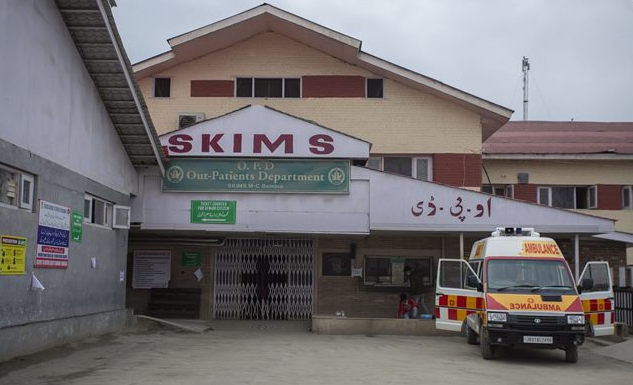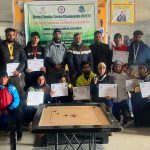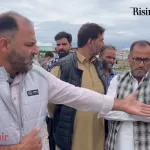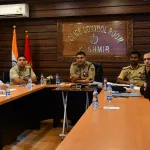EXPECTATIONS AND LIMITATIONS
Whenever viral video surfaces depicting Sher-i-Kashmir Institute of Medical Sciences (SKIMS) in a negative light, one cannot help but reflect on the impact such one-sided narratives have. These videos, often sensationalized, send waves of demoralization and disappointment through the ranks of caregivers, staff, and administrators who strive to keep inpatient, outpatient, diagnostic, and therapeutic services operational despite significant obstacles. The individuals uploading such videos fail to grasp the harm inflicted, as these portrayals undermine the collective effort of healthcare providers.
Imagine mobile phones and microphones infiltrating wards, OPDs, X-ray rooms, and operating theaters. Without proper boundaries, the hospital environment risks becoming chaotic. Grievances (syn; whistle blowing) should be addressed through official channels rather than public defamation. Resorting to such actions, even when grievances are legitimate, is counterproductive and tantamount to media trials.
Unfortunately, in today’s digital age, praising an organization rarely garners attention, while spreading malicious or half-true video clips is a guaranteed recipe for controversy. It is crucial to approach the current efforts to reclaim SKIMS’ glory with a balanced perspective, emphasizing the need for an organized referral system. At times, SKIMS functions more due to overwhelming rush and looks like a general or camp hospital. Many patients arriving at SKIMS could be effectively treated at peripheral healthcare centres, but weak referral systems and uncoordinated policies exacerbate the situation. Addressing these issues requires a collective effort.
The Dual Burden of Expectations and Limitations
SKIMS stands as a symbol of hope for the people of Kashmir. For decades, this institution has been the ultimate healthcare destination for those unable to afford expensive treatments at corporate hospitals or seek care outside the region. However, the growing gap between public expectations and the institution’s ability to deliver high-quality care places SKIMS in a precarious position. The administration, staff, and overall healthcare ecosystem face monumental challenges that hinder their ability to meet the rising demands of the population. While this is not a defence of any shortcomings in healthcare delivery, it is essential to evaluate the situation with fairness and objectivity.
Expectations vs. Reality
SKIMS is perceived as a lifeline for the common Kashmiri, with politicians often leveraging its reputation during election campaigns by promising state-of-the-art facilities and transformative reforms. However, the ground reality tells a different story. Occasionally, patients encounter staff overburdened with rush, hints of inadequate infrastructure, staff, and delays in care, may lead to dissatisfaction. This mismatch between expectations and reality often results in criticism directed at the administration and staff, who are left grappling with systemic issues beyond their control.
Public Expectations and Mistrust
The public’s expectations of world-class care from SKIMS often clash with the institution’s constraints. At rare occasions near POC (point of contact) due to rush when these expectations are unmet in expected timeline, dissatisfaction grows, fuelling mistrust. Social media amplifies this dissatisfaction, often presenting a one-sided narrative that ignores systemic challenges. Such narratives erode staff morale and create a hostile environment for healthcare providers.
Challenges Facing SKIMS; Loss of Autonomy
SKIMS has suffered significantly due to the loss of its autonomy. This has hampered its ability to recruit staff, procure essential equipment, and allocate resources effectively. Bureaucratic delays now impede decision-making, leaving the institution unable to respond quickly to urgent needs. Severe Staff Shortages; The institute operates with an acute shortage of healthcare professionals, acknowledged by Honble CM /MoH on the annual day of SKIMs, working below the normal standard of national or international doctor, or nursing /paramedical staff ratio to patient inflow. Overworked doctors, nurses, and support staff face burnout, diminishing the quality of care. Recruitment processes are slow, leaving critical vacancies unfilled for extended periods.
Overburdened Patient Load
As Kashmir’s premier healthcare institution, SKIMS handles an overwhelming patient load. Weak primary and secondary healthcare systems funnel cases to SKIMS that could be managed elsewhere. An ineffective referral system exacerbates the problem, stretching resources and staff even thinner. Resource Constraints to replace outdated machinery, advanced or upgradation of diagnostic tools, and insufficient funds for maintenance hinder treatment outcomes. Without modern equipment, SKIMS cannot achieve its full potential as a center of excellence.
Social Media’s Role in Shaping Perceptions
A recent viral video showcasing a dissatisfied patient’s experience at SKIMS highlighted the challenges of social media’s influence. While platforms like these offer a voice for public grievances, they also fuel sensationalism and media trials. This misuse not only breaches hospital protocols and patient privacy but also risks turning healthcare institutions into stages for drama rather than sanctuaries of healing. Such trends compel healthcare providers to adopt defensive practices, ultimately undermining patient care.
A Balanced Perspective
Accountability is essential, but it is unfair to place the entire burden on SKIMS staff and administration. Operating within severe constraints, these individuals work tirelessly to provide care. Addressing the gap between expectations and reality requires a collaborative effort involving the government, the community, and the institution itself.
Proposed Solutions
Adequate Staffing; Recruitment processes must be expedited to fill vacancies. Contractual staff can be hired during peak seasons or emergencies to manage patient inflow. Retaining skilled professionals through incentives and fair promotion policies is equally crucial. Infrastructure and Resources; the government must allocate sufficient funds to upgrade SKIMS’ infrastructure, procure advanced equipment, and maintain existing facilities. A dedicated budget for upgrading research and training will help the institution remain at the forefront of medical advancements.
Strengthening Peripheral Healthcare
A robust primary and secondary healthcare system can reduce the patient burden on SKIMS. Peripheral centres must be equipped with trained staff and resources to manage basic and intermediate cases. A regulated referral system will ensure that only critical cases reach SKIMS.
Restoring Autonomy and Director’s Powers
An empowered administration is vital for efficient decision-making, can allocate resources timely, procure equipment, and implement reforms without bureaucratic delays.
Addressing Grievances Transparently
Transparent systems for feedback and grievance redressal are essential. Establishing contact points for complaints and conducting regular audits will rebuild trust and accountability.
Public Awareness Campaigns
Educating the public about SKIMS’ constraints can foster cooperation and understanding. Campaigns and displays all over hospital areas should emphasize hospital protocols, the importance of using official grievance channels, and the collective responsibility of maintaining a functional healthcare system.
Political Will and Long-Term Vision
The Chief Minister and Health Minister’s acknowledgment of SKIMS’ challenges during its annual day must translate into actionable support. Optimizing manpower, upgrading machinery, and boosting staff morale are critical steps. Long-term policies prioritizing SKIMS as a cornerstone of healthcare in Kashmir must be implemented without delay.
SKIMS is more than a hospital, it is a beacon of hope for Kashmir’s people
Bridging the gap between expectations and reality demands a collaborative approach involving the government, community, and institution. By addressing grievances through official channels and avoiding sensationalism, the institution can focus on its mission of delivering high-quality patient care. Ultimately, SKIMS is a shared responsibility.
By supporting it with resources, and cooperation, we can ensure that it continues to be a pillar of hope and healthcare continues to serve as the lifeline for the people of Kashmir. Without this collective effort, we risk losing an institution that has been the last stop for those who cannot afford alternatives—a loss that the people of Kashmir cannot afford. Strengthening peripheral healthcare, restoring autonomy, allocating resources, and fostering public cooperation are crucial for SKIMS to fulfill its promise on Quality and safe healthcare.
(The author is a Surgeon at Mubarak hospital, ex Alumni of SKIMS, Healthcare policy analyst, National and Certified Expert in Healthcare planning and Quality reforms. He can be reached at: [email protected])








